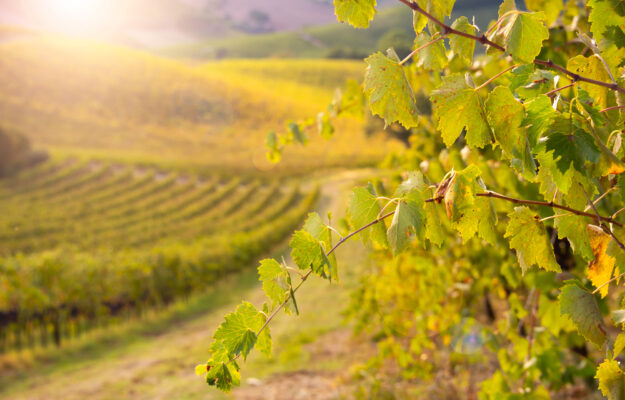Recently, despite many operators having underlined it for some time, the world of wine has realized that it produces more product than the market is able to accept. Especially looking at lower quality level productions. It has been like this for years, actually, but in the last few months the ongoing decline in consumption linked first to the pandemic, then to the growing health-consciousness and to a less than prosperous economic situation, between inflation and wars, has worsened the problem. And if to lower production we can use tools that do not distort the landscape and environment, such as lowering yields, first and foremost, according to many, structural and radical soluctions are needed. Like the uprooting of vineyards. A topic that was also debated at Vinitaly 2024, but on which, at least on the Italian front, there was some uproar and perhaps confusion, with an almost desire to snatch a title, given that in Italy (where the vineyards are more than 660,000 hectares), as well as in Spain (which has just under 1 million hectares of vineyards) – instead of France, where in Bordeaux the measure is already in place, in Australia or California, where at least they talk about it – there are no official proposals or requests in this sense, neither from any segment of the supply chain, nor from the institutions. As confirmed to WineNews, from the “Wine Ministerial Meeting”, recently in Franciacorta, opening the celebrations for the centenary of the OIV (Office Internationale del la Vigne e du Vin), the Minister of Agriculture, Francesco Lollobrigida. “Until now there is no request in this sense – Lollobrigida clearly said – even if we can work to modulate high quality production, which allows us to produce wine of high value, which together with a wine accessible to all, allow us to grow our exports in value. It is clear that, eventually, we must be able to imagine crops that would replace the current vineyards, which today are also safeguards for the einvironment and the territory”. And the same line of thought is also that of the minister of Agriculture of Spain, Luis Planas Puchades, who again, to WineNews, said: “It’s a very delicate topic, but for the moment it’s out of question in Spain. The fact is that you can have the best wine in the world, but if you don’t have a market it becomes a big problem. But what our decision will be represent a key element, but I am very optimistic for the future of the sector, especially if Spain, France, Italy and all the other OIV countries are able to cooperate on certain issues, as well as compete”.
In any case, the theme is on the table. As said and reported by WineNews, the plan to remove 9,500 hectares of vineyards began in Bordeaux some time ago, but there are those who argue that in France, to rebalance the market, 100,000 hectares out of 750,000 should be uprooted. In Australia, however, as reported by Reuters, 20 million vine plants have already been destroyed, on 12,000 hectares, 8% of all Australian vineyards, and even in California there are those who have 12,000 hectares of vineyards, such as Allied Grape Growers.
But, beyond the internal debate within individual states, the discussion is open at EU level, as recalled in recent days, by Vinitaly 2024, by Luca Rigotti, who in addition to being at the helm of one of the most beautiful Italian cooperatives such as Mezzacorona and the wine sector of Italian cooperatives, is also at the helm of the Copa Cogeca Wine Group. “We need to talk about supply control tools for productions that don’t find a market, but we can’t simply say “there are too many grapes, let’s eliminate them”, that doesn’t apply to everyone. The proposals made to the Commission are measure to control supply, which, in certain European areas, can even lead to definitive or temporary eradication, allowing producers to replant vineyards of and when the moment allows it, but together with this in all the areas affected by these measures there will be a suspension of the 1% increase in the vineyard area foreseen by the EU regulation”.
But, in any case, when we talk about uprooting vineyards, common sense says that things must be considered carefully and very carefully. Because the vineyard is an important investment for companies, and also for the taxpayer, given that, since the OCM Vino has been in existence, as as recalled by the UIV (Unione Italiana Vini), Lamberto Frescobaldi, who is also at the helm of one of the most important and largest Italian wine companies such as Frescobaldi Group, “the restructuring of vineyards cost our country 2,6 billion euros in public contributions”. And also because a vineyard, once uprooted, in addition to losing its productive value, sees the fundamental role it has in protecting the territory from the point of view of hydrogeological risk disappear, as well as the indisputable beauty of the vineyard landscapes. Without forgetting that a vineyard is not an industrial production plant, which can be turned on and off on command, but requires years, once planted, to start producing, and above all to produce grapes from which quality wines can be born.
Copyright © 2000/2026
Contatti: info@winenews.it
Seguici anche su Twitter: @WineNewsIt
Seguici anche su Facebook: @winenewsit
Questo articolo è tratto dall'archivio di WineNews - Tutti i diritti riservati - Copyright © 2000/2026







































































































































































































